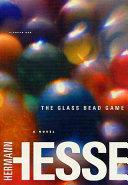
“It is a pity that you students aren't fully aware of the luxury and abundance in which you live.”
The Glass Bead Game (1943)
Context: It is a pity that you students aren't fully aware of the luxury and abundance in which you live. But I was exactly the same when I was still a student. We study and work, don't waste much time, and think we may rightly call ourselves industrious — but we are scarcely conscious of all we could do, all that we might make of our freedom. Then we suddenly receive a call from the hierarchy, we are needed, are given a teaching assignment, a mission, a post, and from then on move up to a higher one, and unexpectedly find ourselves caught in a network of duties that tightens the more we try to move inside it. All the tasks are in themselves small, but each one has to be carried out at its proper hour, and the day has far more tasks than hours. That is well; one would not want it to be different. But if we ever think, between classroom, archives, secretariat, consulting room, meetings, and official journeys — if we ever think of the freedom we possessed and have lost, the freedom for self-chosen tasks, for unlimited, far-flung studies, we may well feel the greatest yearning for those days, and imagine that if we ever had such freedom again we would fully enjoy its pleasures and potentialities.
